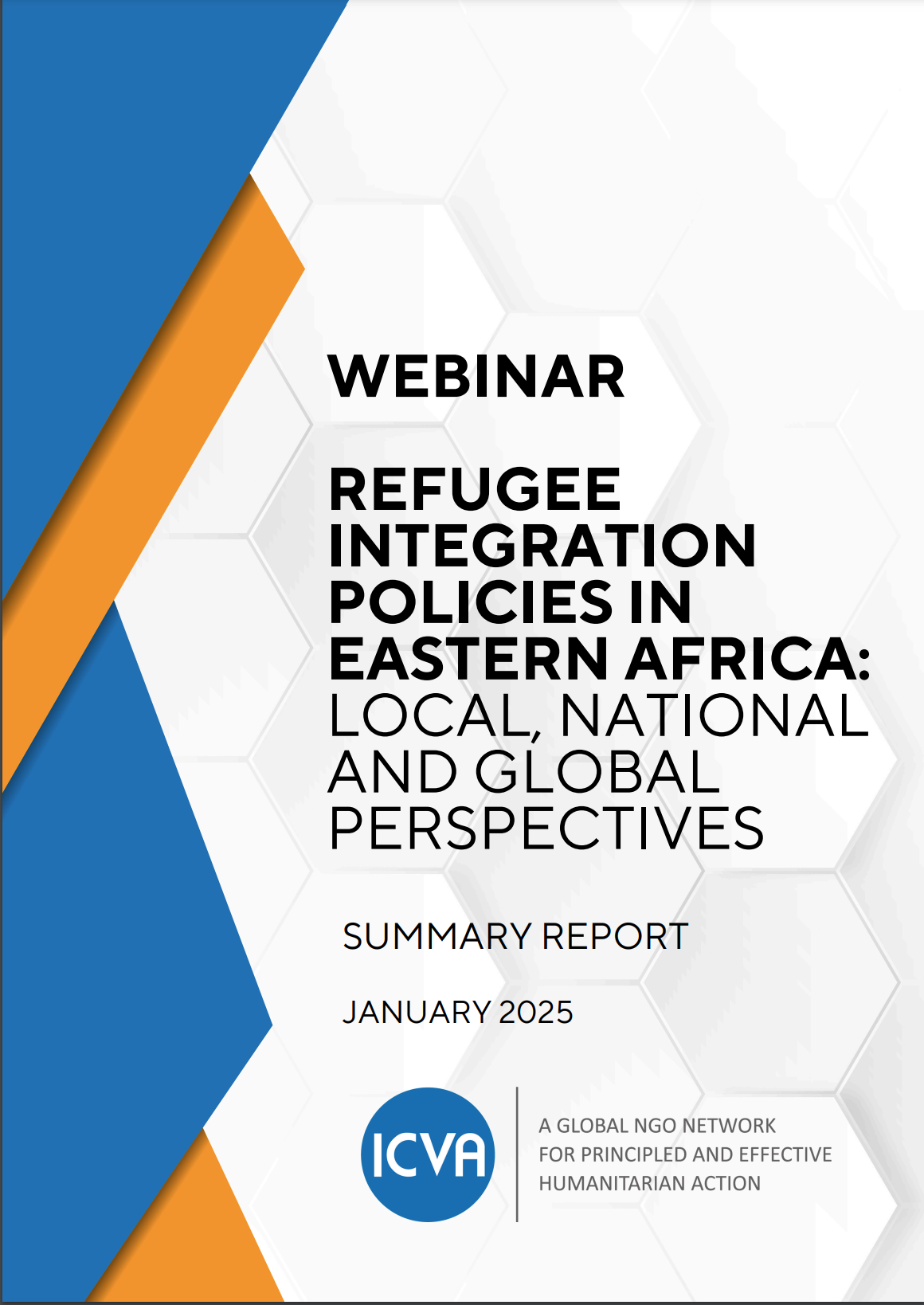ICVA recently explored the progress and gaps in refugee integration policies in Eastern Africa in a regional webinar. The objectives of the webinar were to contribute local perspectives to ICVA’s global policy and advocacy work and to exchange best practices in refugee integration. The webinar also encouraged reflection on how humanitarian actors can engage more effectively with decision-makers and policy processes.
Global initiatives, such as the Global Compact on Refugees, have fostered political commitments to refugee protection and burden-sharing. The Intergovernmental Authority on Development (IGAD) and partner states of the East African Community (EAC) have responded with important regional refugee frameworks, such as the 2023 Munyonyo Declaration.
However, despite the political declarations, implementation remains uneven:
IGAD’s policies are largely declaratory and not legally binding, while EAC policies, although enforceable, tend to face delays in execution. Political will fluctuates from country to country, as illustrated by Tanzania’s halted efforts to naturalise over 162,000 Burundian refugees after 2010.
Kenya’s Leadership in Refugee Policy Reform
Kenya emerged as a country of focus during the discussions. Legal reforms, including the Refugees Act 2021 and accompanying regulations, have enhanced refugees’ access to services like health care, education, and business registration. Initiatives such as the Shirika Plan aim to promote self-reliance among refugees through an all-of-society approach. County-level strategies in Turkana and Garissa counties have integrated refugee concerns into local development planning.
Yet, challenges persist, including administrative barriers, restrictions on refugees’ freedom of movement, and bureaucratic delays in accessing work permits.
The Critical Role of NGOs and Refugee-Led Organisations
Non-governmental organisations (NGOs) and refugee-led organisations (RLOs) continue to play a vital role in bridging the gap between refugees and policymakers. They facilitate public participation, advocate for rights-based policies, and ensure that refugee voices inform national and regional decision-making. Evidence-based advocacy, like the Refugee Consortium of Kenya’s policy brief on statelessness, has been key to pushing for legal reforms.
‘Refugees' views don't always align with policy makers' views. Refugees in Uganda interpret local integration to mean access to citizenship as the end goal…We need to advocate for local integration in its true legal sense.’
Paul Kithima
CEO of Bondeko Refugee Livelihoods Centre, Uganda
Barriers to Implementation: Bureaucracy, Security, and Expectations
Despite progress, barriers remain in the implementation of refugee policies in Eastern Africa. Bureaucratic inefficiencies, national security concerns, and limited funding undermine efforts. Additionally, there is often a disconnect between refugee expectations—particularly regarding citizenship—and government policies focused on social inclusion rather than legal integration.
Global Opportunities to Elevate Regional Voices
Globally, ICVA is working to elevate these discussions through forums such as the UNHCR Standing Committee, regional NGO consultations, and the High-Level Officials Meeting (HLOM) in December 2025. These platforms offer opportunities to hold stakeholders accountable and promote refugee-led engagement in global policy spaces.
Looking Ahead: Realising Durable Solutions
Refugee integration in Eastern Africa is progressing, but much more needs to be done. Inclusive policies, sustained political commitment, multi-stakeholder collaboration, and meaningful refugee leadership are essential to realising durable solutions for refugees and host communities alike.











